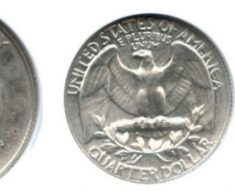Toyota has announced that it will recall nearly 3 million of its vehicles due to an airbag issue.
According to Reuters, Toyota Motor Corp. announced on March 30 that it will be recalling a total of about 2.9 million vehicles in Japan, China and Oceania, among other regions. The vehicles being recalled include Toyota’s Corolla Axio sedan and its RAV4 SUV crossover.
The vehicles are being recalled due to faulty airbag inflators that can explode if exposed to heat for prolonged periods of time. At least 16 deaths have been linked to exploding Takata inflators, mainly in the U.S.
Reuters reports that Subaru manufacturer Fuji Heavy Industries, Mitsubishi Motors and truck maker Hino have also recalled vehicles due to similar problems with airbag inflators made by Takata Corp. The three companies are recalling a total of approximately 240,000 vehicles between them.
Global transport authorities consider Takata’s airbag inflators containing the chemical compound ammonium nitrate to be unsafe if used without a drying agent. Roughly 100 million Takata inflators on the market must be withdrawn.
Toyota says that the latest recall comes following a wider recall of the inflators ordered by global transport authorities in 2016.
Recalls were issued for about 1.16 million vehicles sold in Oceania, the Middle East, and smaller markets for the company, Toyota says. About 750,000 vehicles were recalled in Japan.
The National Highway Traffic Safety Administration referred to the recall as the “largest and most complex safety recall in U.S. history.”
Vehicles sold in North America are exempt from the most recent recall, the company says.
According to Consumer Reports, the issue with the Takata inflators in question involves a metal cartridge inside the airbag that is meant to help inflate it but can ignite with greater force than intended. In crashes where the inflator housing is damaged, the cartridge can spray metal shards through the car’s interior at speeds high enough to penetrate the car’s occupants — a potentially fatal malfunction. Moisture, temperature and age can all increase the chances of such a malfunction.
The National Highway Traffic Safety Administration has determined that the cause of the problem is that the airbags use an ammonium nitrate-based propellent without a chemical drying agent.
Takata has faced serious legal and financial ramifications over the issue; in February 2017, the company pleaded guilty to a felony charge and paid out more than $1 billion in a settlement.
Sources: Reuters, Consumer Reports / Photo Credit: Reuters






